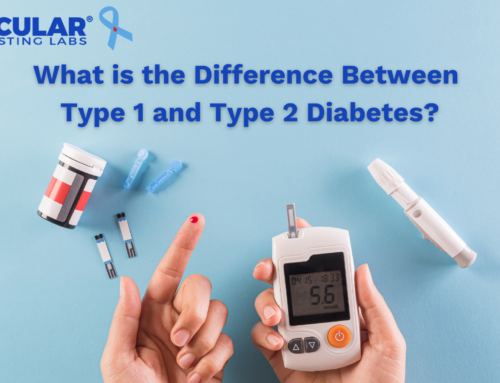
Toxicology Testing and Wellness
Share:
Toxicology testing is a commonly performed type of diagnostic testing in medicine today. While it is frequently associated with illicit drug use and addiction, it also has clinical applications. Providers may want to monitor patients living with chronic pain, avoid dangerous drug interactions, or keep patients safe as they navigate substance abuse and recovery.
Opioid medications are commonly prescribed to patients with chronic pain, which can profoundly impact physical, mental, and overall wellness. Toxicology testing is routinely ordered for these patients to monitor therapeutic uptake and effectiveness and the risk of addiction. According to a study in The Clinical Journal of Pain, it is widely recognized that self-reported usage of pain management drugs is unreliable. Medication tolerances may increase, leading to under- or over-reported use of prescription drugs and a decrease in prescription effectiveness. Patients may forget or choose not to report medications prescribed by other providers. Or they may become frustrated and use illicit substances to manage their pain. For all these reasons, it is common for routine toxicology testing to be ordered so that doctors and other providers can most effectively treat their patients, manage their pain, and help them maintain their overall health and wellness.
Substance abuse recovery is another reason providers may order toxicology testing. While it comes with a negative stigma, substance use disorder, of which addiction is the most severe form, is common and can severely decrease all forms of wellness, including physical, mental, and financial. According to the Substance Abuse and Mental Health Services Administration (SAMHSA), 46.3 million adolescents and adults—or 16.5% of the US population—met diagnostic criteria for substance use disorder in 2021. It’s important to remember that substance abuse can affect anyone, and patients monitored for it should be treated with dignity and respect, as all patients have the right to be treated. This form of testing is also intended for clinical and medical monitoring of patients to achieve and maintain recovery, not a condition of control or punishment. Recovery from addiction or other substance use disorders can improve overall wellness and quality of life, making toxicology testing a critical step in treatment programs.
Another reason for toxicology testing is accidental ingestion or overdose. Patients sometimes present to urgent care or the emergency department and require toxicology testing to determine the cause of the symptoms they are experiencing. The attending physician or provider will order testing to determine what substances are present, if they are unknown or unreported, or if the patient cannot report what substances have been ingested. In this case, screening can lead to successful treatment of an acute poisoning or overdose.
Molecular Testing Labs offers many toxicology testing options, including urine and oral fluid. We offer testing for 18 drug classes and 85 analytes on urine samples, and 31 analytes on oral fluid testing. Whether you’re monitoring the wellness of patients experiencing chronic pain, treating patients for substance abuse, or administering medications such as methadone or suboxone, our toxicology testing can help you get your patients on the road to recovery.
Continue the discussion by sharing this post on your social media!
References
- N., & Fanciullo G.J. (2002). Role of Urine Toxicology Testing in the Management of Chronic Opioid Therapy. The Clinical Journal of Pain, 18(4), S76-S82. https://journals.lww.com/clinicalpain/abstract/2002/07001/role_of_urine_toxicology_testing_in_the_management.9.aspx
- Substance Abuse and Mental Health Services Administration. (2023, January 4). SAMHSA Announces National Survey on Drug Use and Health (NSDUH) Results Detailing Mental Illness and Substance Use Levels in 2021. HHS.gov. https://www.hhs.gov/about/news/2023/01/04/samhsa-announces-national-survey-drug-use-health-results-detailing-mental-illness-substance-use-levels-2021.html
- Substance Abuse and Mental Health Services Administration (US); Office of the Surgeon General (US). Facing Addiction in America: The Surgeon General’s Report on Alcohol, Drugs, and Health [Internet]. Washington (DC): US Department of Health and Human Services; 2016 Nov. CHAPTER 5, RECOVERY: THE MANY PATHS TO WELLNESS. Available from: https://www.ncbi.nlm.nih.gov/books/NBK424846/
- Mukherji P, Azhar Y, Sharma S. (Updated 2023 Aug 7) Toxicology Screening. StatPearls [Internet]. https://www.ncbi.nlm.nih.gov/books/NBK499901/




